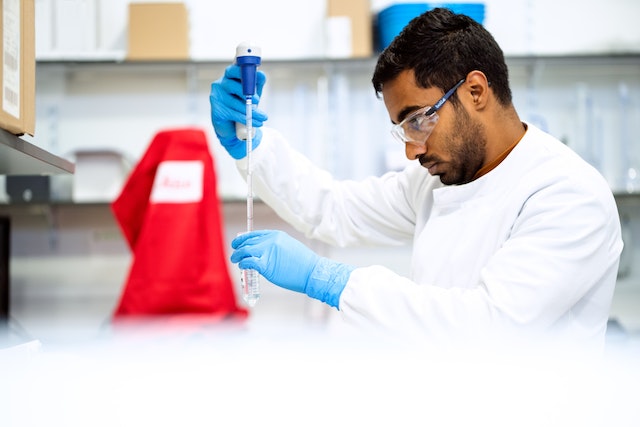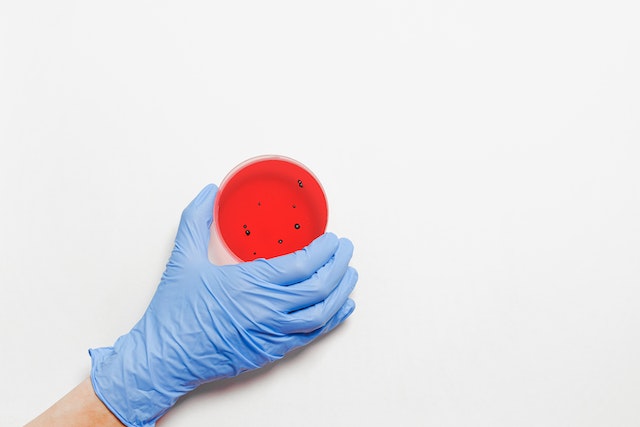Comments
- No comments found

The use of living organisms or their parts in the manufacturing of useful goods is known as bioprocess.
It’s an exciting and fast-developing area of study. Its significance is seen in many different fields, including the food, pharmaceutical, and biotechnology sectors. There are often numerous steps involved in bioprocesses, and each one requires careful control of a diverse set of factors.
One of the most recent and promising developments in this area is the introduction of microbioreactor systems. These small-scale bioreactors provide a number of benefits, including decreased costs and time, enhanced throughput, and improved control over the bioprocess variables.
In this article, we’ll look into the fundamental steps of the bioprocess, with a specific emphasis on the significant role that microbioreactor systems play in contemporary bioprocessing.

Bioprocessing is a fascinating technique that exploits the wonders of living organisms or their components to produce useful products. This method has become a pivotal tool in numerous industries such as food, pharmaceuticals, and biotechnology, fueling a renaissance in the scientific community. Bioprocesses are multifaceted procedures carried out in several stages, including upstream processing, fermentation, and downstream processing.
The intricate nature of the bioprocess demands adequate management of various variables such as temperature, pH, nutrients, and oxygen levels, which adds a layer of complexity to an already challenging process. The potential for bioprocessing to convert raw materials into high-value goods with transformative effects on society is, however, what makes it so interesting.
Microbioreactor systems have been a game-changer in the bioprocess industry, reducing costs and time, increasing throughput, and allowing better control of bioprocess variables. These small-scale bioreactors offer various applications, such as optimizing bioprocess conditions, microbial screening, and biopharmaceutical production.
The inception of microbioreactor systems can be traced back to the 1970s, when they were developed to study microbial growth. From humble beginnings with a single vessel, microbioreactor systems have dramatically transformed into sophisticated systems.
Today, several vendors offer commercial microbioreactor systems, and the technology is continually improving, enabling greater precision and control in the bioprocess industry.
These systems are essential for accelerating bioprocess development, reducing overall costs, and improving product quality. The advantages of using microbioreactor systems are driving the continued growth of the bioprocess industry, and we can expect further developments to enhance their capabilities.

Bioprocess is an intricate process that involves various stages, each requiring meticulous care and attention to detail. These stages include upstream processing, fermentation, and downstream processing, each playing an indispensable role in the production of valuable products essential to our daily lives. Let’s take a closer look at what each of them includes.
The first stage of the bioprocess is upstream processing, which is where the microorganisms used in the process are grown and prepared for fermentation. This stage involves several complex techniques, such as media optimization, inoculum development, and sterilization. The goal is to provide the ideal environment for the microorganisms to thrive and reproduce, ensuring a successful fermentation process.
Fermentation, the second stage of the bioprocess, is where microorganisms are cultivated under carefully controlled conditions. Depending on the type of microorganism and the product being produced, fermentation can be classified into several types, such as batch, fed-batch, and continuous fermentation. This stage requires precision and accuracy, as the slightest deviation from optimal conditions can have a significant impact on the final product.
The final stage of the bioprocess is downstream processing, where the desired product is separated and purified from the fermentation broth. This stage is crucial, as it ensures that the product is free from any contaminants and impurities that could affect its quality. The downstream processing stage involves several techniques, such as filtration, centrifugation, chromatography, and drying, each of which plays an essential role in achieving the final product's desired purity.
Bioprocesses are not only complex but also dynamic, with several variables affecting the final product's quality. These variables include temperature, pH, nutrients, and oxygen levels, each requiring careful management throughout the bioprocess stages. Furthermore, the type of microorganism used and the product being produced can also influence the bioprocess's success, making it an intricate and challenging process. It is complicated as the process of using fraction collectors in the process of Chromatography.
The bioprocess is a multifaceted and vital process that requires careful management of numerous variables. Microbioreactor systems have revolutionized bioprocessing with their cost-effectiveness and ability to optimize conditions and screen microorganisms. In 2022, the global microbioreactor market was valued at $167.06 million and is projected to reach $322.17 million by 2030, indicating its growing significance in the bioprocess industry.
With the advantages offered by microbioreactor systems, bioprocessing has become more efficient, leading to the production of essential products that positively impact our daily lives. As such, microbioreactor systems are essential tools that will continue to shape the bioprocess industry's future.
Leave your comments
Post comment as a guest